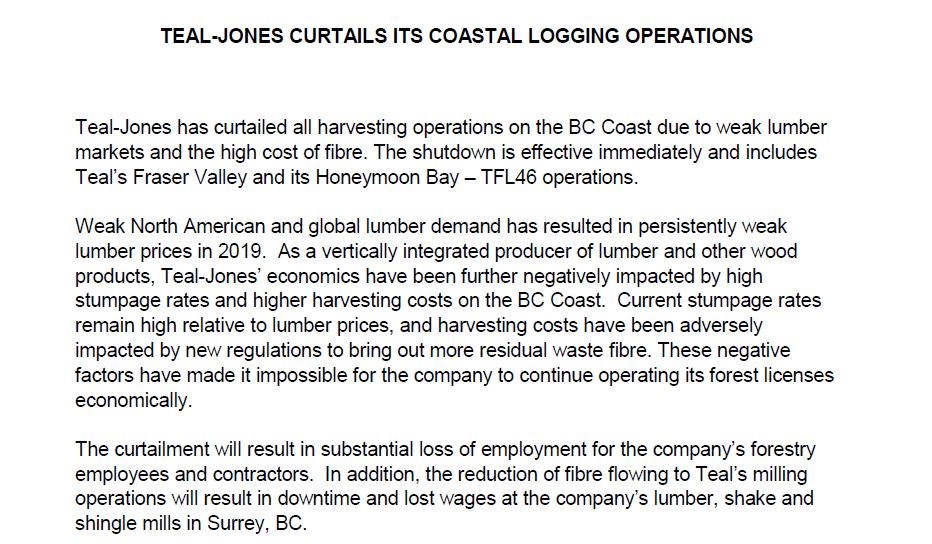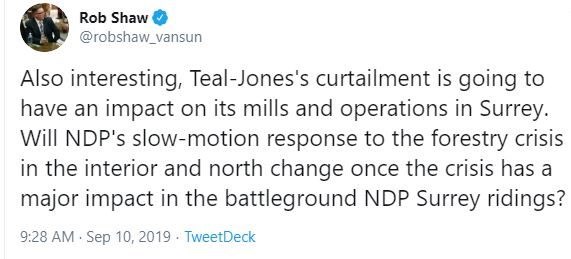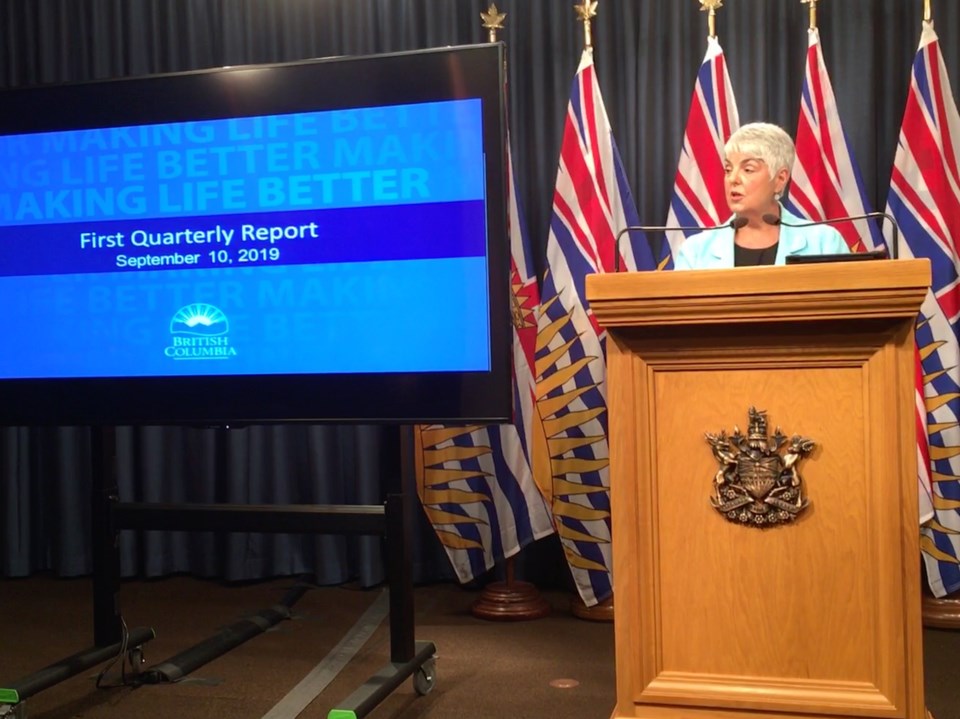As Finance Minister Carole James and her staff put the final touches on the quarterly budget update, the NDP government was hit by more bad – and very politically pointed – news in forestry.
In a stark press release, The Teal-Jones Group announced it was curtailing its coastal logging operations – all of them – which would result in a “substantial loss in employment.”
It gets worse: Teal-Jones outlined the factors that led to their decision, including a few things beyond Victoria’s control, such as weak North American and global demand. But the news release also and especially highlighted high stumpage rates, which are directly controlled by the provincial government:
“Current stumpage rates remain high relative to lumber prices, and harvesting costs have been adversely impacted by new regulations to bring out more residual waste fibre.”
In other words, Teal-Jones was pointing the finger straight at NDP policies.
Optically, it doesn’t help that Teal-Jones is no demonizeable US monolith, but a BC family-owned operation, in operation here since 1946.
It came a day after West Fraser Timber announced it was also curtailing operations at all five of its B.C. operations.
What’s more, the location of many of those lost jobs are a nightmare for the NDP: swing ridings in Maple Ridge and Surrey – communities where the NDP outperformed history and expectations in 2017, and any reversion to the mean is potentially fatal.

It magnified what might have been a reasonably quiet day before provincial politics takes a back seat to the federal election – quarterly updates are heavy on numbers, and usually a very dry affair.
Yes, there’s still a surplus, albeit reduced to $179 million, down $95 million from February.
B.C.’s economic growth is now forecast at 1.7% this year, and 1.9% in 2020, down considerably from earlier projections of 2.4%. That further stresses the provincial budget, as growth offers “extra” dollars – new money that doesn’t have to be generated through increased taxes. When growth evaporates, so does a government’s financial room to maneuver.
Retail sales are essentially stagnant, with a growth of just 0.8%, down from 9.3% just two years ago. Exports experienced an actual decline, down 2.9% from last year. It was just two years ago that exports showed 12% growth.
Housing sales have slumped, and dragged down provincial revenues with it – meaning property transfer taxes are off the NDP’s projections by $475 million.
A healthy economy and balanced budget are critical for any government, but perhaps even more so for the NDP. The party has to fight uphill (indeed, up mountains of their own making) against perceptions they can’t be trusted with the purse. So if the provincial economy continues to slow down on their watch – whatever the reason(s) – it will be especially costly.
As James herself put it, there are plenty of risks on the horizon. But for now, the economy is still growing, if more slowly; and there’s a surplus, if dwindling. This in a comparatively lucky year for both floods and fires, before an agreement with the BCTF, and pending a critical class action lawsuit against ICBC, which could cost the government hundreds of millions.
Despite all that, forestry is this government’s sharpest headache – a disastrous situation that continues to get worse.
Maclean Kay is Editor-in-Chief of The Orca.
SWIM ON:
- The Business Council of BC's Ken Peacock talked to Maclean Kay about signs that BC's economy was slowing down in July.
- #BCPOLI Hotstove's instant reaction and discussion of the NDP's 2019 budget.
- Aaron Sutherland described "spiralling costs" at ICBC in March.



